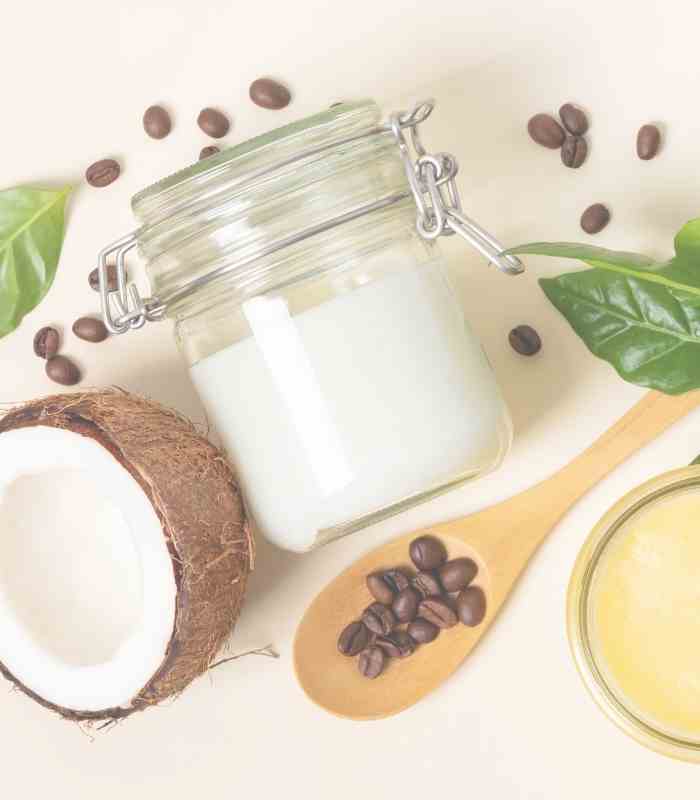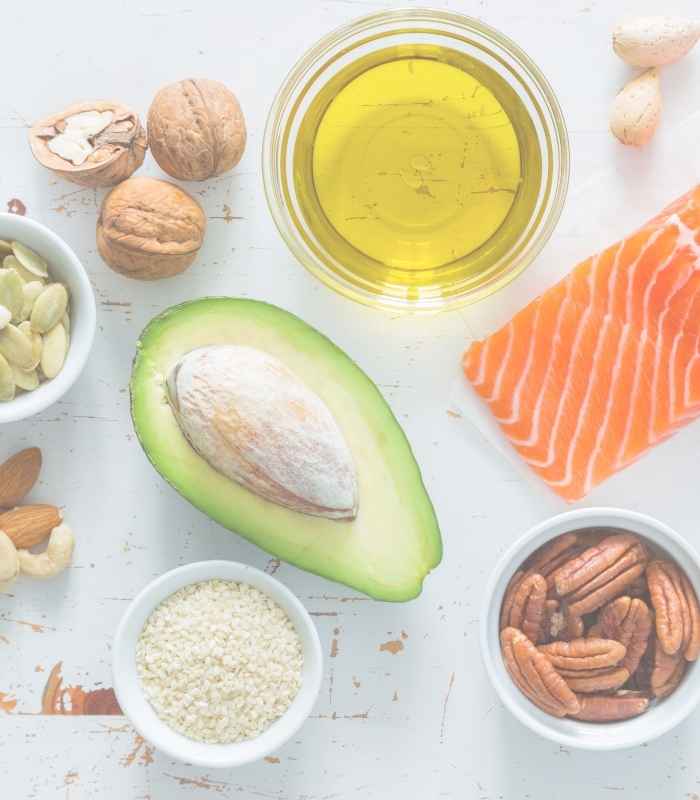Let’s set the record straight on what fats are considered “good” and which ones are “bad.”
If you listen to the standard dietary advice you’ll be led to believe that animal fats are mostly bad and plant sources of fats are good.
I know you don’t want to just listen to the standard advice though. I know you want to know the truth about fats so I’m going to break it down for you here.
All dietary fats fall into one of three categories based on the chemical structure of the fatty acids that make up that fat. There will be different types of fatty acids in each fat, but their classification as saturated or unsaturated is determined by which fatty acids make up the majority of the fat.
Saturated Fats
Contrary to what seems to get repeated over and over (despite evidence to the contrary over and over), saturated fats are not the devil they’ve been made out to be.
A saturated fat just means that the fatty acid chains are fully “saturated” with hydrogen. This makes them sturdier and more resistant to oxidation and damage.
This is very important for our bodies. When we consume damaged fatty acids, they affect us in very negative ways. Inflammation of all kinds, arterial damage, liver issues, energy levels, metabolism, blood sugar regulation. All of these get negatively impacted when we consume damaged or easily oxidized fats.
Guess what – saturated fats are not easily oxidized! This means they can handle high heat cooking and are shelf stable.
They do not just get lodged in your arteries. They are not inherently bad.

Saturated fats include the fats in animal meats and dairy products and tropical fats like coconut and palm oils. These fats can absolutely be a part of a healthy diet.
Monounsaturated Fats (MUFAs)
MUFAs are made of fatty acids that have one double bond. This just makes them a little less stable than saturated fats.
They have been shown time and time again (and not debunked, everyone seems to be in agreement here!) to be beneficial for the heart, brain, and metabolism.
While they can be prone to oxidation a little bit easier than saturated fats, they still can handle cooking. Extra virgin olive oil is the best bet here. Avocado oil, nuts (especially macadamias), and olives are all high in MUFAs.
While there might be confusion about other fats, everyone generally agrees that MUFAs are healthy fats to include in your diet.
Polyunsaturated Fats (PUFAs)
Here’s where things get a little wonky.

The chemical structure of PUFAs includes two or more double bonds. This makes them easily damaged when exposed to heat and light.
This means that they should NOT be used for cooking. So foods should not be fried, baked, or roasted in these oils or else their delicate fatty acids will get damaged.
PUFAs that exist in a whole food form, like those in sunflower seeds, are protected by the whole food of the seed. When that oil is extracted, it has nothing protecting it, and is then very susceptible to damage.
The oil in fatty fish like salmon and sardines is another example. In the whole food form of the fish they are protected and are not going to be damaged when cooked. But when those oils are extracted for a fish oil omega 3 supplement, those delicate oils can be easily damaged.
That is why I only recommend omega 3 supplements from companies that I trust. They must take great care with their processing of those delicate oils.
Good vs Bad PUFAs
Whether or not a PUFA is “good” or “bad” is determined by its form and what sort of processing it has gone through. PUFAs that exist in fatty fish, nuts, seeds, and meats are a healthy component of your diet. PUFAs from refined oils like soy, canola, sunflower, safflower, corn, cottonseed, or grape seed are NOT a healthy addition to your diet. The processing they go through before even being used damages those delicate fatty acids. Then they are further damaged when used to bake or fry the packaged foods in which they’re found.
THAT is what would be considered a bad fat. Man-made trans fats also fall into the “bad” category. Be on the lookout for hydrogenated or partially hydrogenated oils. These are what you need to avoid.
Often you’ll see saturated fats lumped into the same sentence as trans fats. These are very different and do not have the same effect on your body at all. Do not be fooled by the over simplified and often flat-out-wrong articles you might see!
For more on polyunsaturated fats and how they are likely causing inflammation in your body (and simple steps you can take to reduce that) continue reading about fats here…
